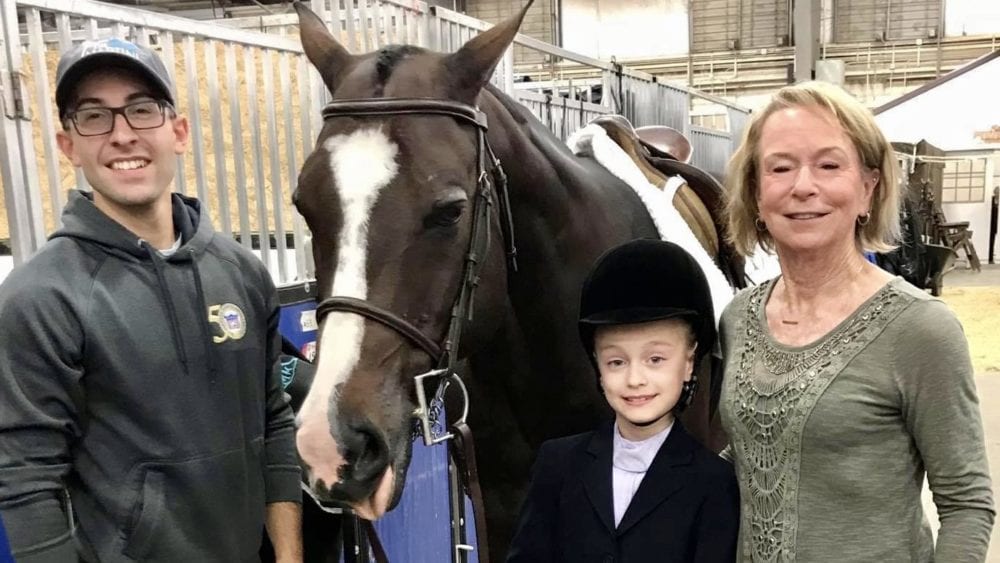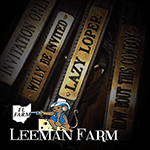Twenty-five-year-old Assistant Trainer, Jared Stack of Hubbard, Ohio, currently works at Brian Cox Quarter Horses. His main duties include riding, showing, coaching, saddling/lounging, and anything in between. “I specialize in the development of the all-around horses in our program,” Stack shares. “This includes anything from teaching the young horses how to change leads and go over the poles to teaching horses showmanship and horsemanship. My favorite classes to show are the western riding and the trail.”
Stack is originally from Kittanning, Pennsylvania, a small town 45 minutes northeast of Pittsburgh. After high school, he attended Clarion University of Pennsylvania, where he graduated with a bachelor’s degree in Corporate Finance and Monetary Economics.
“I got involved with horses at a very young age,” Jared told us. His aunt had trail riding horses and he spent a good amount of time with her, trail riding for hours. At the age of ten, Jared started working on a local hobby farm owned by Don and Laura Sue Stewart, where he would help out and get paid riding horses. Then, he moved to a training type barn where he cleaned 20+ stalls after school to pay for his horse’s board and lessons. Next, Stack worked for Brian Himes Performance Horses for eight years as his assistant showing and training Quarter Horses.
Stack started showing at 12 years old at the local open shows. “My family did not have a lot of money and could not afford horse showing, so I would take horses in the barn that people didn’t want to show, and I would show them,” Stack remembers. “I would usually take two horses to the shows, a showmanship horse and a pleasure horse. I went to my first Quarter Horse show with Brian Himes when I was 14, and I knew at that moment, that’s what I wanted to do.”
We sat down with Jared to find out more about his background and goals in the industry.
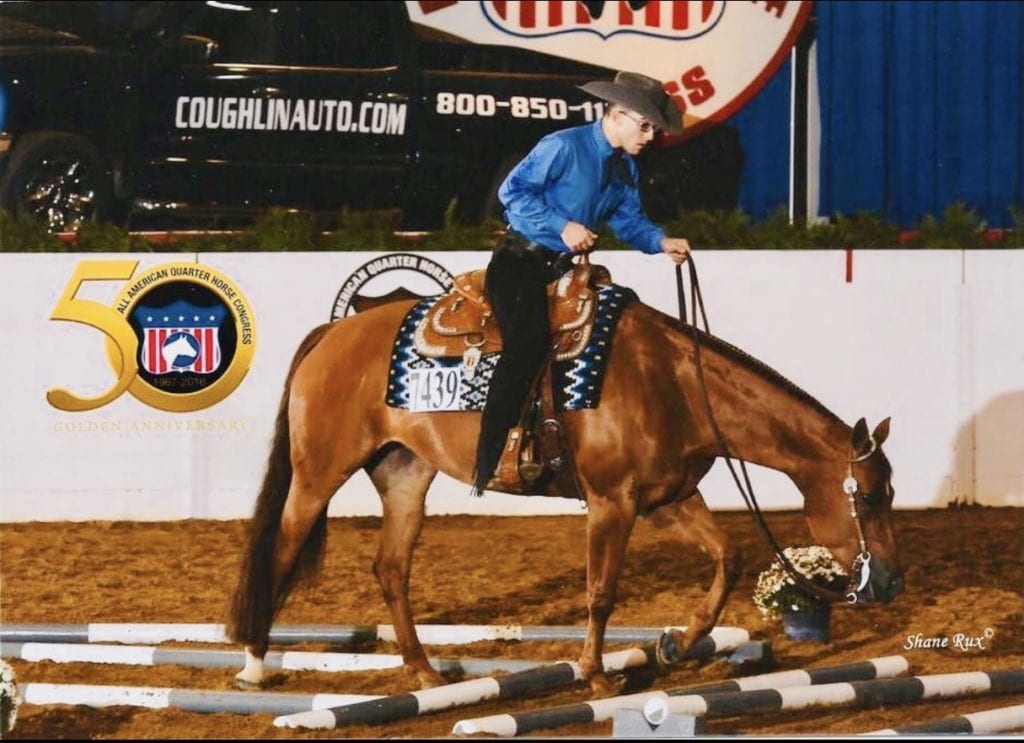 GHS: Hi Jared. Thanks for sitting down with us. Can you tell us what you enjoy about working with horses?
GHS: Hi Jared. Thanks for sitting down with us. Can you tell us what you enjoy about working with horses?
Stack: I like horses because they directly reflect the amount of work you put into them. Usually, the more work you put into them, the better they are and vice versa. Also, no two horses are the same. Therefore, as trainers, we have to adapt to each horse’s learning style and ability. What I like most about showing is not winning. Sure, it is nice to win, but it’s coming out of the pen knowing you had your horse well prepared so that it was obedient and correct. I also like showing because it tests ourselves and our horses to find their weaknesses and strengths, allowing us to capitalize on them.
GHS: What has been your best accomplishment so far?
Stack: My favorite accomplishment in the pen is seeing a customer succeed. They might succeed by executing a good pattern that they struggled with, or perhaps they needed to go in and school something to be better the next time. I feel a sense of accomplishment when my horses and riders are prepared well, the horses are obedient, and their movement is to the best of their ability.
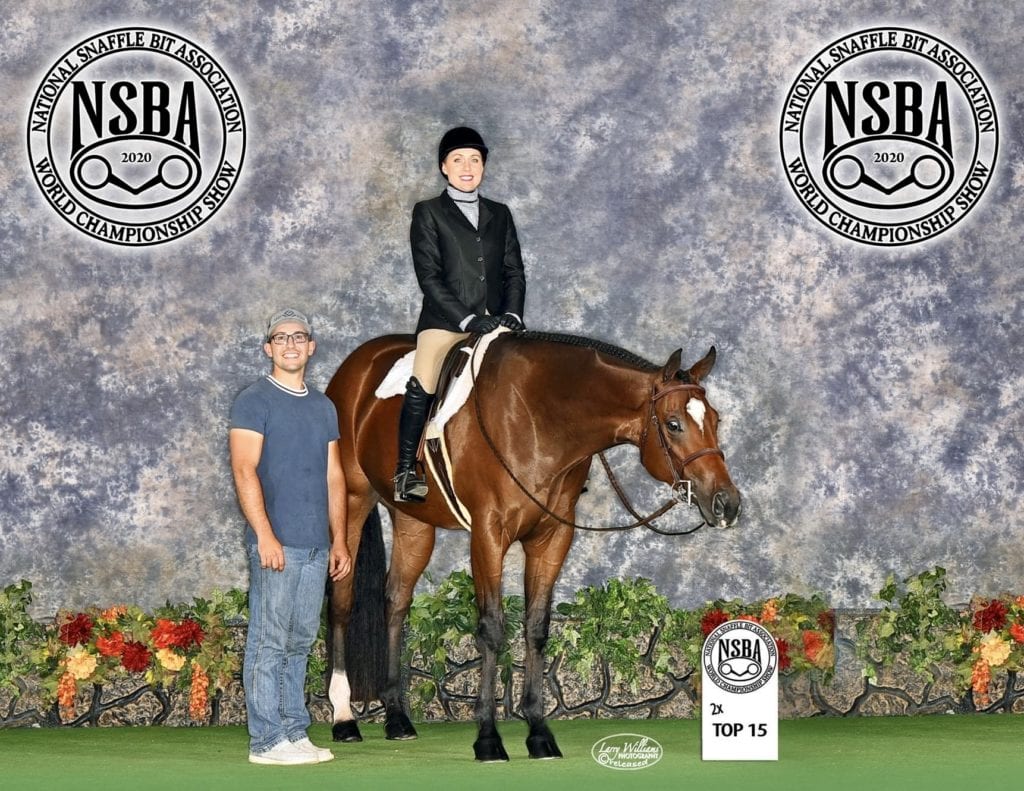 GHS: Who has been your biggest mentor?
GHS: Who has been your biggest mentor?
Stack: My biggest mentor from the age of fourteen would be Brian Himes. Brian taught me what it is to be a horseman, take your time with a horse, and create a lasting impression. No shortcuts or gimmicks will make up for wet saddle pads. He helped mold my “feel” and allowed me countless opportunities to show some great horses. We share many memories over the eight years I worked there, and we still talk at least once a week for a check-in.
Another mentor is AQHA World Champion Cyril Desjarlais, who taught me a lot about western riding and is a big supporter of mine. I also consider Brian Cox a big mentor. I’ve learned and am continuing to learn a lot about the development of the futurity horses. He is a master at making show horses who come out and perform with such ease and grace while still putting the horse’s best interest first. Lastly, I look up to Charlie Cole and Brian Isabell Garcia, who I consider great horsemen and friends.
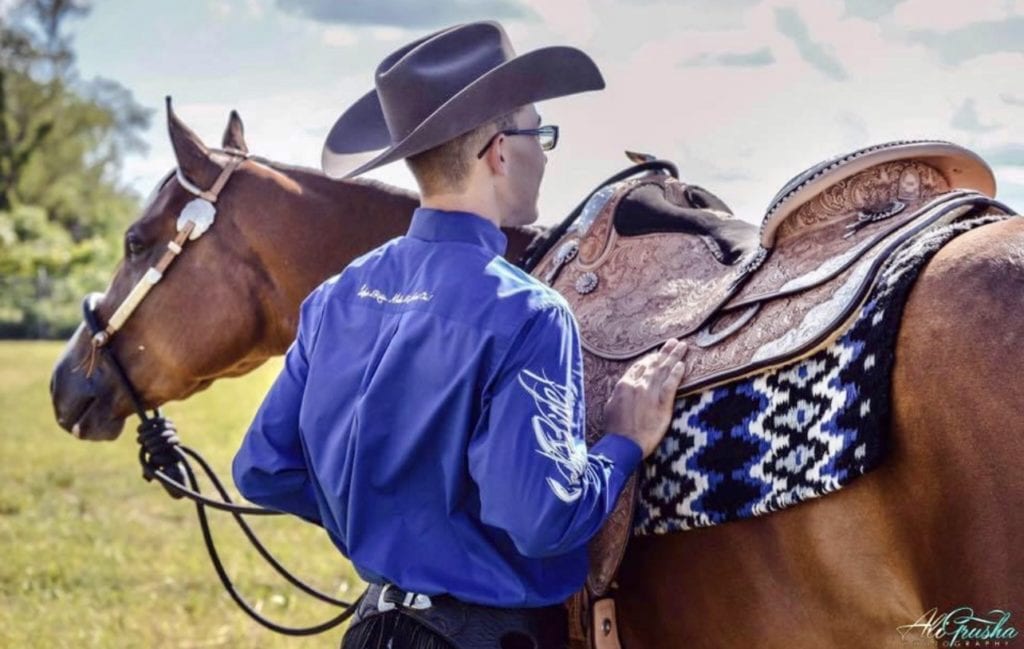 GHS: What advice would you give to young trainers?
GHS: What advice would you give to young trainers?
Stack: My biggest advice to young trainers is, where there is a will, there is a way. Find a trainer you respect and ask them if you can help them, even if it’s someone local to you. Put yourself out there, be open-minded, and always show up. Act with integrity and do the right thing, even when you think no one is looking. Lastly, work for someone who values you and values your ability because a little appreciation goes a long way. And always believe in yourself.
GHS: What are some of your favorite memories?
Stack: A very fond memory of mine is when a select amateur who was hard of hearing and diagnosed with Parkinson’s got to show the horsemanship at the Congress. She struggled to remember patterns all year, and she struggles to hear during lessons, but she is a dedicated rider who loves her horses. That moment when she came out of the coliseum after completing her pattern, I met her in the alleyway, and she was smiling ear to ear. She had not forgotten the pattern and did a great job, and it was a very emotional moment for me because she is an extraordinary friend of mine.
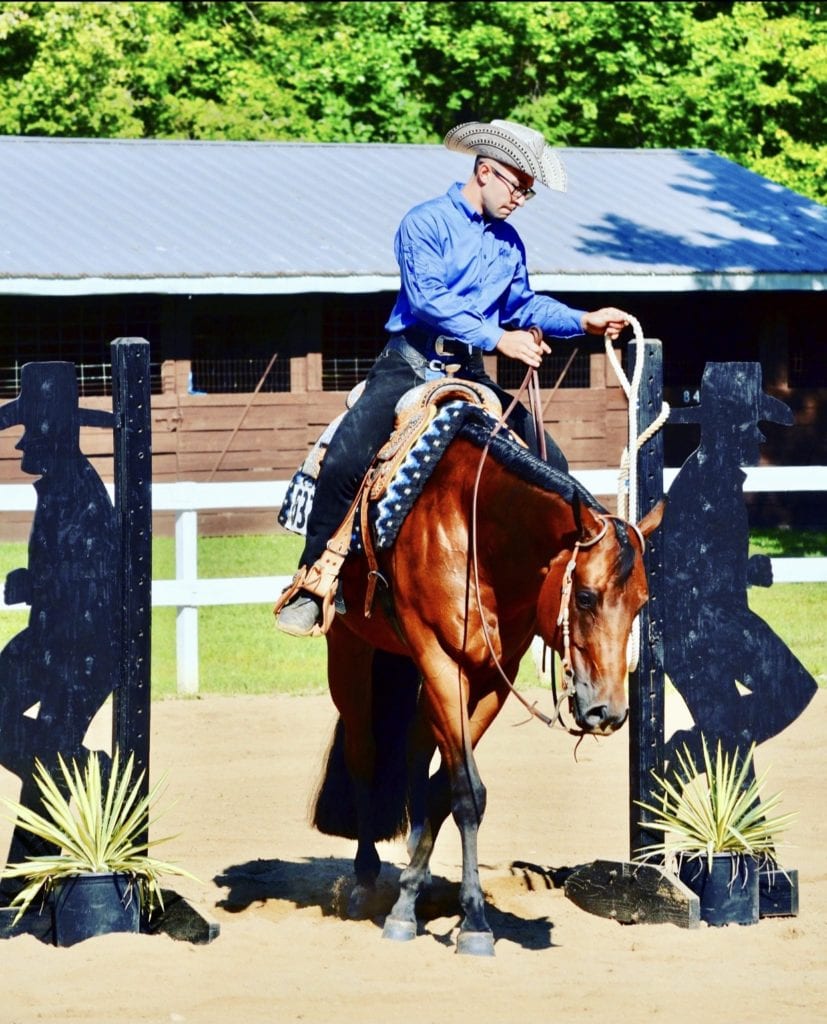 GHS: How did you go about going to work for Brian Cox Quarter Horses?
GHS: How did you go about going to work for Brian Cox Quarter Horses?
Stack: This is a funny story, I always knew who Brian Cox was, and I had opened and started my own business; Stack Show Horses, in a nearby town and I ran into him at our local tractor supply. I had a horse I wanted to take over to ride with him, and he kindly agreed to let me come over. I went over and we talked about the pleasure horses needing to do the all-around to make them more marketable and how the industry was changing to a need for all-around horses. I got to thinking that maybe we could make a good team. I wanted to learn more, and he wanted someone to start pleasure horses in the all-around events, so we decided to team up. It was easily one of the best decisions I have ever made.
My business is privately contracted, and I am also his assistant. It is a win-win. We are making some really awesome horses with an excellent pleasure horse foundation that can easily transition to all-around events. What I like most about working for Brian is he values my opinion, we can bounce ideas off one another and come up with a good plan for both the horse and rider. He is also so talented at creating such a correct pleasure horse that looks easy and soft to ride. I feel very fortunate and blessed to work in such a nice facility and for really great people.
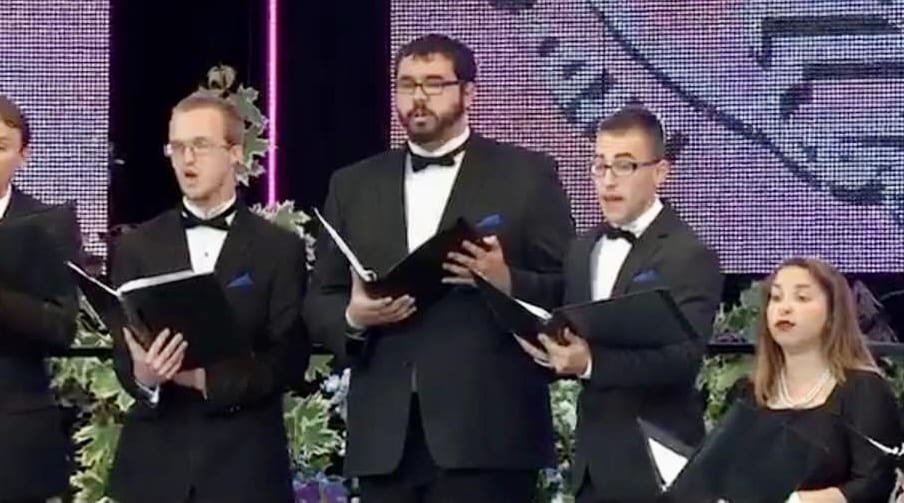 GHS: What’s one thing people probably don’t know about you?
GHS: What’s one thing people probably don’t know about you?
Stack: One thing people don’t know about me is that I am a singer. I started singing in the choir when I was in 4th grade, and I sang in the choir every year, clear up to and through college. I have sung in forty-two choirs throughout my life. I have traveled to London, Wales, and Ireland to sing. I have also sung in Carnegie Hall in downtown Manhattan with the Master Choral. I have met many great people from all walks of life because of the choir, and created many great memories.
GHS: Is there anything you’d like to see changed in the industry?
Stack: There are a couple of things I’d really like to see changed in the industry. I feel that the pleasure horse has come a long way and has the cadence and flow we desire, but now all the focus is on the topline. People in the industry are now using shortcuts and gimmicks to create this steady, almost unnatural topline through neck injections. These injections sore the horse’s neck so that they don’t “bob” their head as much. This is a hush-hush conversation that needs to be brought to light to “level” the playing field. I’d also like to see a push for more 3 and 4-year-old classes with added money. This would allow people to start 2-year-olds later when they are more mature physical and help prolong their show careers.
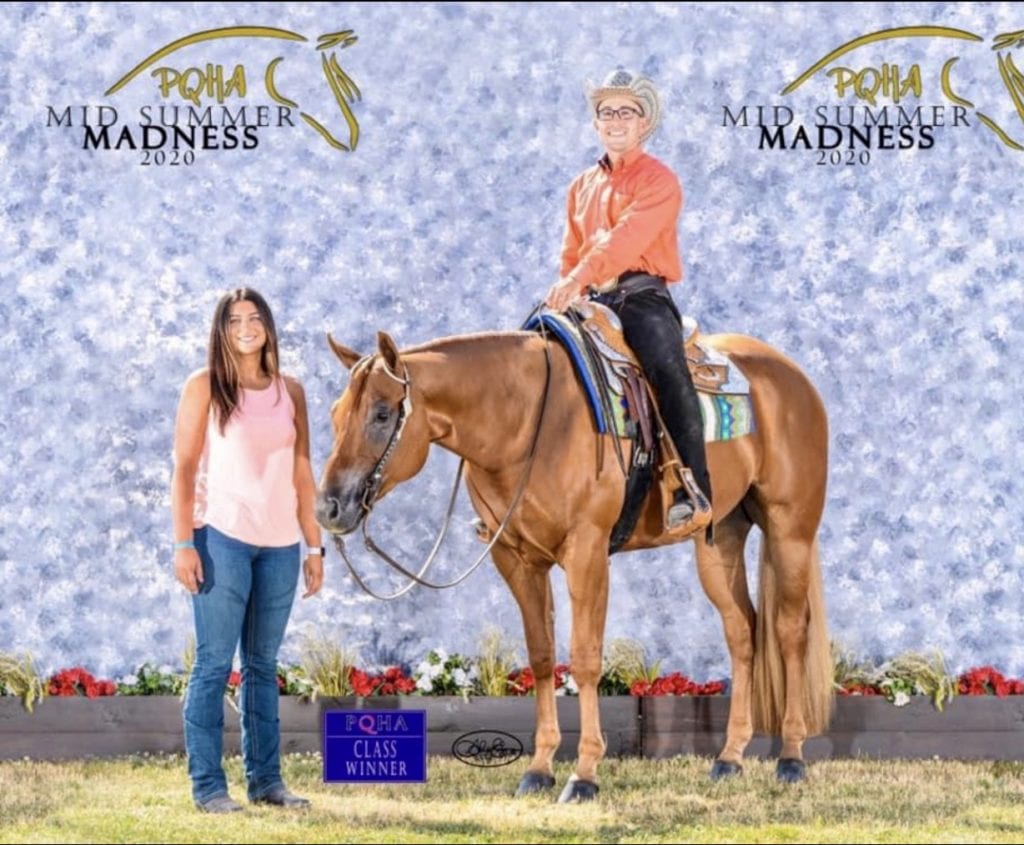 GHS: What are your future goals?
GHS: What are your future goals?
Stack: In the future, I’d really like to win the Congress one day and maybe even the World Show. I see myself staying with Brian for a long time as I am very happy there and we are doing big things. Furthermore, in the future, I’d like to be able to look back and say I did the best I could do with the resources I was given.
GHS: Anything else you’d like to add?
Stack: In closing, I’d like to thank all of my friends and customers who believe in me and entrust their horses to my care. They have helped mold me into the horseman, trainer, coach, and exhibitor I am today. Lastly, the only way to a broke horse is wet saddle pads and time.


